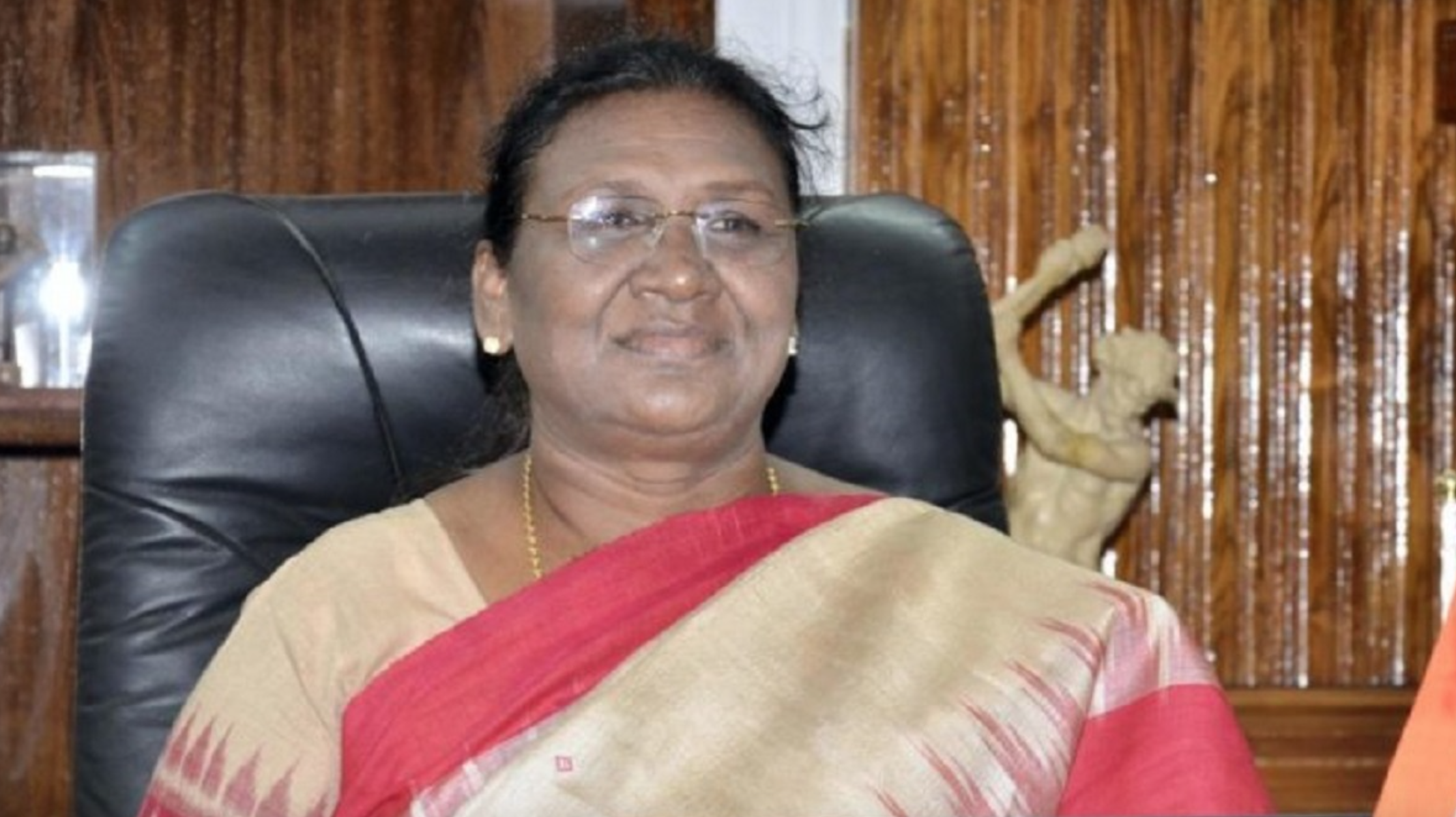President-elect Droupadi Murmu revives new hope in her nondescript village

101 years after the first tribal leader was elected to the legislature in pre-independent India, Odisha-born Droupadi Murmu from the Santhal community has been elevated to the highest office in the country, making a new history.
Tazeen Qureshy | TwoCircles.net
ODISHA — In Uparbeda, a village situated close to the foothills of the Similipal National Park in Odisha’s Mayurbhanj district, there has been an uncanny commotion for the last one month. Scores of vehicles with news reporters and cameras have interrupted the otherwise isolated and peaceful village, attempting to flash visuals and photos from every corner.
Attention is inevitable. The tribal-dominated village with a population of 3500, will be giving India its first tribal President and the second woman to hold the highest position in the country.
President-elect Droupadi Murmu was born in Dungurisahi village, one of the two hamlets in the Uparbeda in Kusumi block. Among the 15 odd houses in the hamlet, is a yellow-coloured pucca house, which is Murmu’s ancestral place. The inconsistent rain has partly damaged the uneven roads that lead to her house but has not been able to dampen the spirit of the village, which is rejoicing in the newfound glory.
Though the “daughter of the soil” had brought several accolades in the past too – she was the first woman from the village to attend college, she became a two-time BJP MLA and was also the Governor of Jharkhand, the latest achievement overrides every other feat.
Every villager has a tale to tell. “She spoke to me before going to Delhi (for filing her nomination) and told me to take care of the children,” Dulari Tudu, her relative who stays at her ancestral village, informed a gathering of reporters.
Binay Kumar Giri, a neighbour, chipped in, “It is a matter of pride for the country that a woman from such a small hamlet has become the head of the state. This will serve as an inspiration to the young girls.”
While this is a moment of joy for the villagers, President-elect Murmu’s journey to Raisina Hills has several much more implications on the tribe she belongs to – the Santhals.
The Santhals residing mostly in Odisha, Jharkhand and West Bengal, are the third largest tribe in the country with a rich historical legacy. One of the first armed rebellions against the British was the Santhal rebellion of 1855 led by the Murmu brothers – Sidhu and Kanhu – which had questioned the exploitative measures by the upper caste ‘zamindars’ and supported by the Britishers.
Murmu’s elevation to the highest office in the country comes over a century after the Dulu Manki from the “Ho” community in Chaibasa (Jharkhand) became the first tribal leader to be elected in the legislature in the pre-independent era in 1921. It unleashes a new hope for the 104 million tribal people (2001 census), constituting 8.6 per cent of the total population of the country.
Her daughter, Itishree, was one of the first to react to what her nomination means for the tribe. “The stereotypes associated with the tribal communities will hopefully end now. My mother’s story can serve as an inspiration and put an end to the taboos and social barriers many Santhal women are subjected to, even now,” she told TwoCircles.net, a day after the candidate’s announcement.
The opposition candidate Yashwant Sinha repeatedly mentioned the Presidential elections were a matter of different “ideologies’ and not just two candidates”. For President-elect Murmu there is pressure to rise above the ‘rubber stamp’ remark being used for her.
In 2017, as the Governor of Jharkhand, she returned two controversial Tenancy Bills – the Chhotanagpur Tenancy Act and the Santhal Pargana Tenancy Act, which sought to give the tribal rights to use the land for commercial purposes without changing the ownership. The tribal land rights issue will continue to remain a bigger challenge for the NDA, which has nominated her.
Back home, as soon as her candidature was announced, a development spree began in her village. Her ancestral hamlet of Dungurisahi which had remained in darkness for decades is expected to soon get electrified after the media highlighted the situation. The other hamlet Badasahi which is also a part of the Uparbeda village is already electrified. Locals hope the issue of water shortage and proper roads will also be taken up soon.
While political pundits believe the nomination of a tribal woman by the NDA is to press for an image of ensuring inclusive political participation and representation, for Murmu, this is a chance to script history. As she takes up the highest office in India, there are great expectations from her.
Tazeen Qureshy is an independent journalist based in Odisha, reporting on rural issues, climate, gender and education. She tweets at @TazeenQureshy
